
“This is a day on which you consult the landmarks of the pact as well as the stars of the future to see if your course be true. It is a day to match experience with ideals, to test the truth of theory by the result of action, to justify principle by practice. It is a day when we may well undertake to recall some of the fundamental things of life and renew our determination to abide by them.
“Progress is of slow growth. Its laws are inexorable. But while it never hesitates to reject that which is false, it does not fail to accept that which is true. It creates much and though it casts aside the unfit, it continuously builds for itself a broader, firmer foundation to which it holds with an irresistible power. It is on that foundation and in accordance with the laws of progress that this institution was built, that it might be a contributing factor to an enduring faith, a consecrated home, a sound government, and the merciful service of an enlightened civilization.

“Wherever search is made for the beginnings of American institutions, two fundamental facts always develop. The first is that they were the direct result of the most profound religious convictions. They were not the outcome of any form or mode of worship which was lightly held and therefore could easily be changed, but of a deep and abiding belief which raised men above such mortal consequences as might befall them from the rack, the scaffold, the fagot, or the block, to an exalted faith to which no earthly limitation has ever been set. The second is a genius for free representative government. Wherever that breed of men, who trace their origin back to primeval days in the forests beyond the North Sea, gather into communities anywhere on earth, they establish some form of local self-government. When the local communities multiply into a sufficient number, each choose representatives who meet in a central body to make laws for the government of the whole confederation. Thus the independent freeman manages his local affairs by the expression of his own will and his federal affairs through representative of his own choosing. This is the essence of the democratic republic, which may seem so natural and inevitable as to be self-existent, but which has been established and maintained only as the result of a long and violent struggle with all forms of ignorance, selfishness and despotism.
“This educational institution in whose name we are today met is the product of Virginia and her ideals. Back of them lie the principles and the men and women which have created and supported the American Republic.
“In the story of the early settlement of our country is found such charm and fascination. A great lesson is taught by the failures which the early inhabitants encountered and in the successes which they made. The hand of destiny runs through it all moving without haste, but without ceasing, irresistibly to a definite end. The old Commonwealth of Virginia goes back to the age of Elizabeth, deriving its charming name from that illustrious Queen. It may not be improper to suggest in this presence that she ranks as one of the great sovereigns of the earth. She demonstrated that of which men have long had the most complete conviction, the ability of women to rule.

“Though the success of settlement did not come during her reign, it supplied the inspiration which finally secured it. It was not long after her departure from the throne of England that a charter was granted under which the first permanent settlement was made in the American Colonies. The royal charter in those days not only created a corporation, but being granted by the King under the authority of the law, provided for a form of government. The Virginia Charter provided, ‘Whoever shall dwell and inhabit within every and any of said several colonies and plantations and every of their children — shall have and enjoy all liberties, franchises and immunities within any of our other dominions to all intents and purposes as if they had been abiding and born within this our realm of England.’
“This was a provision perhaps made accidentally at the time, but which in later days had great significance. If the people of the Colonies had the same rights as the people of England, there was legal justification for the claim which they made prior to the Revolution that they were bound by no laws to which they had not given consent through representatives, and sound authority for the assertion that the Revolution was not a rebellion, but the assertion and maintenance of the ancient liberties which has been the memorial birthright of all subjects of the English realm. Charters might be revoked, laws might be repealed, constitutions might be changed, but even at this early day there was a conviction in the minds of the people that they had rights which were above and beyond the power of their government to limit or destroy.
“It has been customary to emphasize the distinction between the Cavaliers of Virginia and the Puritans of New England. There were differences, but they were rather incidental and unessential. In fundamental things they were in agreement. The Cavaliers exhibited a personal loyalty to the king which the Puritans repudiated, but there was such a substantial agreement among them as to the rights of English subjects that personal loyalty made little resistance when the last Stuart was driven from the realm and substantially all subjects joined in the assertion and defense of their common and inalienable birthrights. Had this not been so, there could have been no bloodless and, therefore, glorious revolution of 1688. The first college of Virginia would not have borne the name of William and Mary.

“In these fundamental principles Virginia and New England moved in a parallel course, deriving their inspiration from the same source. After the first struggles and sacrifices to secure a foothold, the population at length increased with comparative rapidity. Towns sprang up, churches were built, and thought was turned toward education. As early as 1621 the company started to provide funds ‘for the erecting of a public free school for the education of children and grounding them in the principles of religion.’ ‘Civility of life and humane learning’ were recognized as the source ‘whereof both church and commonwealth take their original foundation and happy estate.’ Preparation was also begun for a university and twenty-three pounds had been subscribed and promised when the Indian massacre in 1622 and the following change in the charter of the company killed some of the friends of this movement and destroyed the authority of others, so that instead of having the first university to be established in America, the Colony waited for seventy years until the coming of the learned clergyman, James Blair, who established in 1693 the second institution of higher learning in the United States the college of William and Mary.
“But if the building of a university was temporarily laid aside and the cause of education was not immediately to prevail, the cause of political liberty did not suffer a like fate.

“In this great work the name of Sir Edwin Sandys is preeminent. Associated with him in the liberal movement which he was promoting was the Early of Southampton and Nicholas Ferrar. It was Southampton who was the patron of Shakespeare. Sandys was a friend of the pilgrims and gave them their patent, when he controlled the Virginia Company, under which they started for the Delaware River, but were driven by storms to Massachusetts. It is interesting to note that the family of John Harvard is associated with Stratford-on-Avon and, undoubtedly, knew Shakespeare at home and later in London Town. The inspiration, both for education and for political liberty, either in Virginia or New England, were not separated but were closely allied. Sandys was the son of the Archbishop of York, a pupil of Richard Hooker the disciple of toleration. Ferrar was the son of an eminent London merchant, a man of deep piety and purity of character. It was these three men who cast an enduring influence over the early destinies of Virginia which endures to this day.
“When Sandys became Treasurer of the Company in April, 1619, it was because he was one of those liberals who were beginning to oppose the tyranny of the Stuarts in Parliament and to support the cause of liberty. He not only helped the Puritans to embark, had he instructed Governor Yeardley to provide for the election of a General Assembly in Virginia and, accordingly, on the 30th of July, 1610, there convened at Jamestown the first representative legislature of Englishmen ever held in America. Thus began the House of Burgesses, which has never ceased to exist as a great example of free representative government.
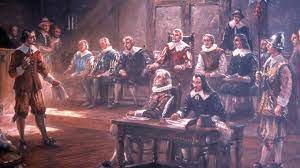
“It is this principle of representation which has ever been strongly developed in Virginia. The Town Meeting was more characteristic of New England, but the government of the Parish, both through representatives either chosen directly or existing as a self-perpetuating body, the importance of the Counties and their representation in a General Assembly were earlier products of Virginia. Wherever a real and true representative body exists, it was always constituted a safeguard of liberty greater than that which any other form of government has ever been able to measure.
“It may not be inappropriate to relate that this great achievement was brought about by the love affair of a young lady. Sandys came into office by defeating Sir Thomas Smith. This old merchant’s son had eloped with Lady Isabella Rich. Sir Thomas Bitterly opposed this match and had a violent quarrel with Lord Rich the bride’s brother, as a result of which the noble Lord, thought an adherent to the King, joined with the Liberals in electing Sir Edwin Sandys. This is another example of the supreme influence of the woman upon the political destinies of mankind.

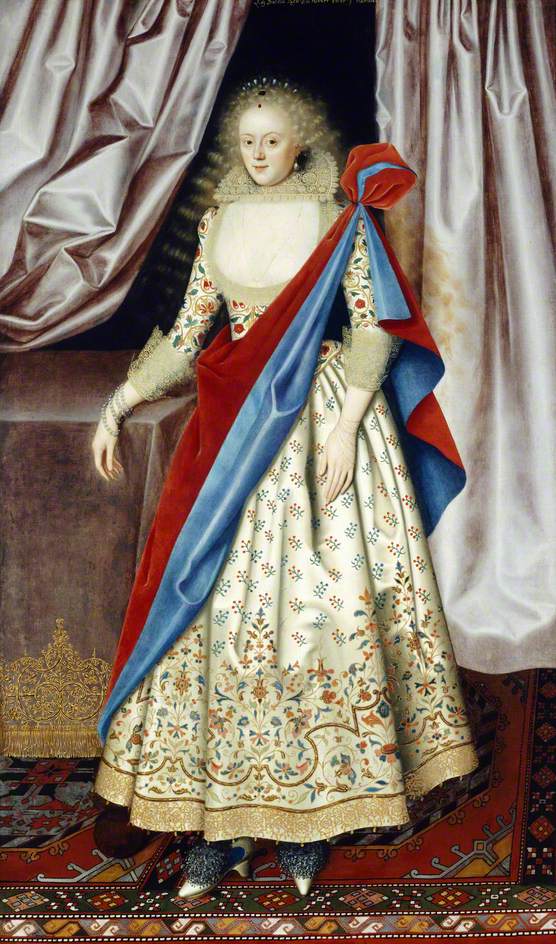
“Although the Indians of America and the despots of England prevented Virginia from securing that preeminence in education which comes to her in political liberty, she was not without free schools at a very early date. An early pamphlet published in London in 1640 relates that there were then twenty churches and the Symms Free School which has been established in 1636 and other petty schools. These were followed by the school of Captain Moon in 1655, and other similar provisions for the training of the young. But Virginia never lacked for men of liberally trained minds, deep learning, and that broad and generous culture which coming to its perfect flower in the Revolutionary period of America, gave to this Commonwealth a preeminence in the leadership of Colonial affairs.
“The establishment of a House of Burgesses was followed by the grant of a new charter made in July, 1621, which was the first formal establishment of free government on this continent. Public authority was vested in a Governor who had veto power, and together with his Council Assembly authorized to meet yearly and make all decisions by a majority vote.
“What an advance this charter was towards freedom and independence is seen by the provision that when a form of government should be adopted ‘no orders of court afterwards shall bind the said colonies unless they be ratified in like manner in the general assemblies.’ This was an acknowledgment of the right of local self-government which the people of Virginia never relinquished.
“Moreover, they always defended this principle. They did not hesitate to rebel against the navigation laws in 1676, asserting principles which very closely parallel those of the American Revolution. Though they did not succeed in the field, they showed that they were a people who knew and dared to defend their rights.
“It was in this way that early preparation was made for the day when Virginia was to take a prominent part in the French and Indian wars and was to provide great resources and great men in the struggle for American independence.
“It is the course of ordered liberty first to seek redress for wrongs in courts of justice. John Hampden had sought that relief from the legal imposition of the king. The brilliant and eloquent James Otis had appeared before the judges to contest the legality of the British writs of assistance in Massachusetts. It was in the famous Parsons’ cause that Patrick Henry declared before the court that the burgesses of Virginia were ‘the only authority which could give force to the laws of the government of this colony.’ A little later he made that famous speech in the house of burgesses when he moved his resolutions which declared that ‘the general assembly of the colony had the sole right and power of taxation over its inhabitants.’ By the adoption of these resolutions Virginia became the first colony to declare its resistance to the imposition of stamp taxation. When redress by law fails, the last recourse is the sword.
“It was thus that this Commonwealth dedicated itself to the cause of American independence. Massachusetts described her as ‘That ancient Colony of whose disinterested virtue this province has had ample experience.’ Virginia reciprocated by sending money and supplies to those whom she described as ‘our distressed fellow subjects of Boston.’ On the fifteenth day of June, 1776, she adopted the Virginia Bill of Rights drawn up by George Mason. Two weeks later came the adoption of a new Constitution, as that Virginia declared its independence and established its government in advance of the action of the Continental Congress which followed shortly on the fourth day of July. ‘British oppression,’ said Patrick Henry at the opening of Congress, ‘has affected the boundaries of the several Colonies. The distinctions between Virginians, Pennsylvanians, New Yorkers and New Englanders are no more. I am not a Virginian, but an American.’

“The President of the first Congress was Peyton Randolph. Another Virginian, Richard Henry Lee, moved the adoption of the Declaration of Independence, while John Adams of Massachusetts seconded the motion. To Thomas Jefferson fell the everlasting honor of drafting the Declaration. George Mason set out the fundamental principles of liberty, on which our state governments are founded, in the Virginia Bill of Rights. Thomas Jefferson proclaimed the great truths of our national life in the Declaration of Independence.
“When the time came to choose a General of the Continental Armies, Massachusetts nominated George Washington of Virginia to hold that position in which no other man could have found success. He holds a place in history which is unapproached by any other figure. He not only brought the War to a successful close in the field, but by the weight of his great character secured the preparation, formation and adoption of the Federal Constitution. As the first President, he organized and gave form and substance to the present government of the United States of America. In him there were combined the greatness of the soldier, the statesman, and the patriot.
“No one can speak of the American constitution without remembering the great contribution which was made to it by James Madison. He not only had a large share in the making of the remarkable document, but his great learning in the ancient and modern history of constitutional law contributed to its expedition and defense, both in the convention and before the people. He wrote more than one-third of the numbers of the Federal and in importance contributed a much larger share. For philosophical reasoning on the foundations of government and for a mastery, both of his subject and the art of expressing it, this work is unsurpassed.

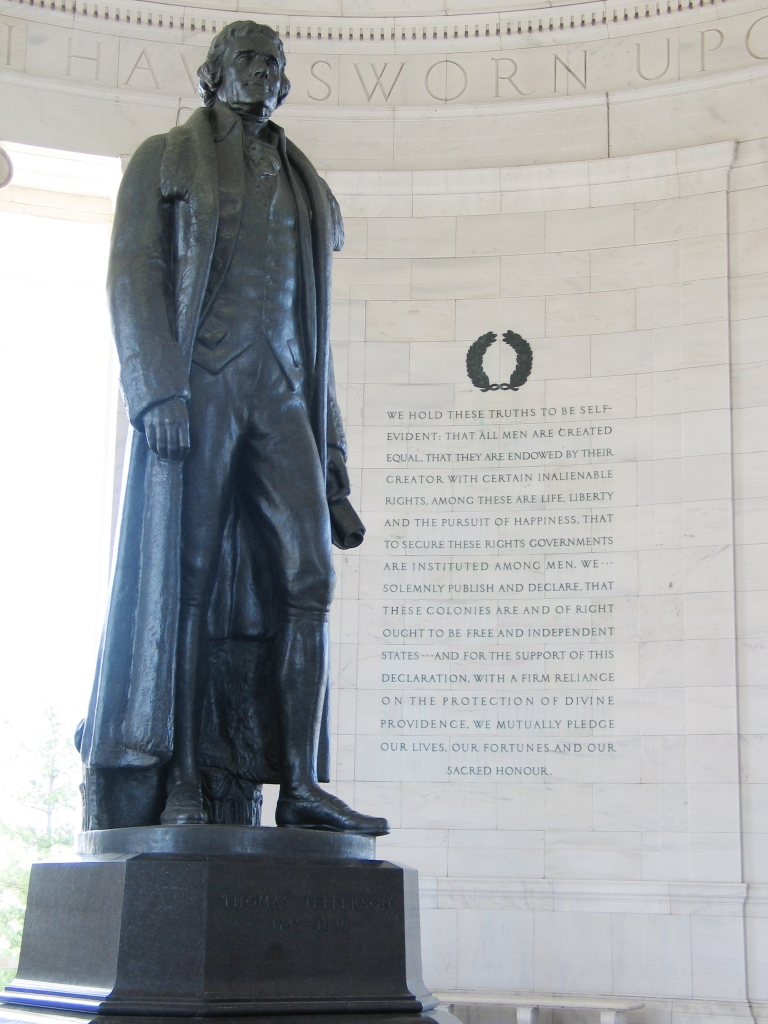
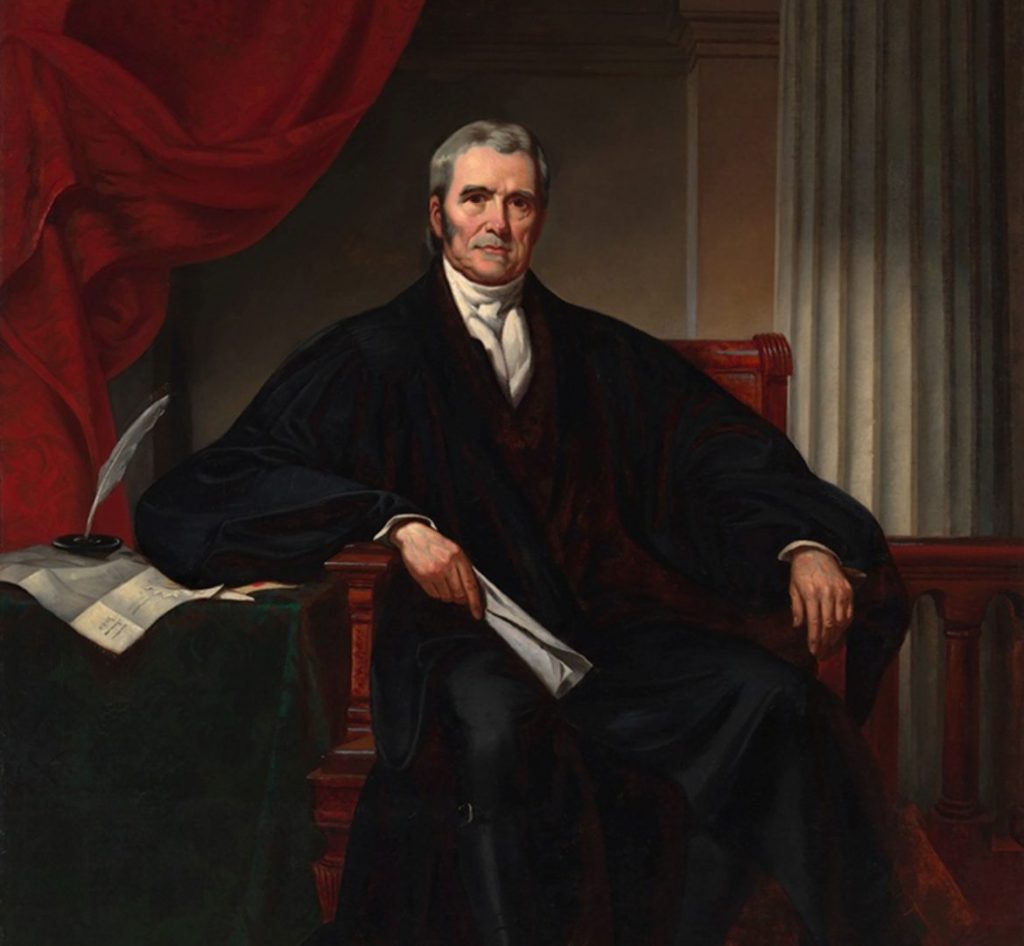
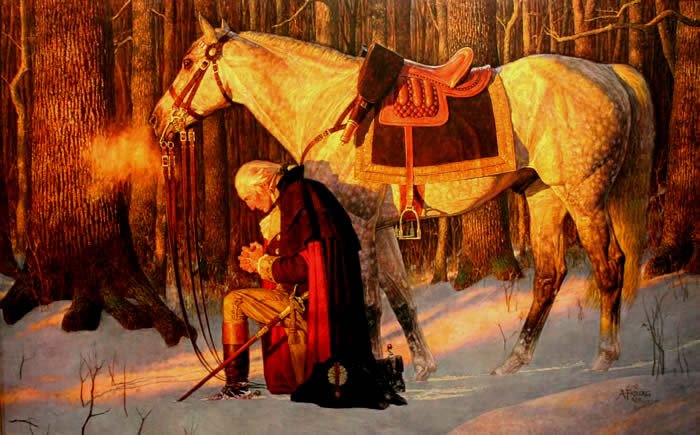
“But Massachusetts was not content with merely giving Washington to the nation. When the time came their first president, John Adams, made his secretary of state, John Marshall, chief justice of the United States. If Washington is to be credited with securing that victory which gave independence, if Monroe is to be credited with a large share in the preparation of the American constitution, this other great son of Virginia, John Marshall, must be credited with being the foremost expounder and interpreter of the federal principle which established that supremacy of the fundamental law without which nationality would have been impossible. Supplementing these great accomplishments was the work of Jefferson, equally important and perhaps more practical in promoting popular government.
“Through these long years there was thus marked out and put into practice the principle of government derived from the consent of the governed, acting through impartial courts of justice, independent legislative bodies and executives with broad but yet limited powers. In it all there has been a progressive development of the right of the individual to the largest possible enjoyment of freedom consistent with a like freedom for others. There has come the protection of property, religious liberty and political liberty all under constitutional guarantees. Our theory of government has worked. In all history the success of America is unapproached.
“These principles have called for more and more consideration of the individual by the government and by society. They have required the promotion of liberal opportunities for education. It was on this background that your institution was founded. The same piety, that same love of liberty, which has gone into the making of all our civilization is apparent here. The chief foe of progress is ignorance. The mainstay of righteousness is an enlightened understanding. The church and school have always gone together. The only way to freedom lies through a knowledge of the truth.
“The highest institutions of learning have been established in America for two purposes; to support the church and to support the state. They are dedicated to that high service, oftentimes specifically in their charters, almost without exception by the character of the men and women who planned their beginnings and have ministered to their continued existence. Their chief aim has been to supply a learned clergy to the cause of religion and wise statesmen to the cause of liberty. This does not mean that college and universally men and women ever were, or now can be, given over exclusively to filling pulpits or holding of public offices, but it does mean that the inspiration and ideas, the faith and the principles of the pulpit and the public office are to find their chief source, their strongest support, their most complete defense in the seats of learning and wisdom, the college and university. It is a most important function which they are called upon to perform and a most solemn obligation that their graduates are called upon to discharge.

“This is in no way contrary to the fundamental American doctrine of faith in the people. Rather it is in accordance with that faith which holds them capable of knowing and understanding and following the truth. Were it not so all instruction and all learning would be in vain. We do not arrive at a certain state of civilization, or culture, and then hold that position ever after without effort. Each generation must go over the same course that it has been necessary for all the past to traverse to reach that position. The only method by which this can be accomplished is constant reiterated training. The college and university are the main source of the supply of that training.
“It is for this reason that we hold in peculiar veneration the men and women who have been the founders of such institutions. You are altogether right in setting apart a day on which to do honor to those who stand in that relation to this college. But we shall best honor them by understanding their purpose, cherishing it and contributing to its fulfilment.

“The gathering increase in the number and attendance of higher institutions of learning for women promises much in this direction. Women are not only the mothers of men, but inevitably and necessarily they are the teachers, instructors, and guides of men. What lessons do men ever remember and cherish, what precepts ever sink so deeply into their very being, molding and directing their entire life, as those which they learn at their mother’s knee, in the seclusion of the domestic fireside? When all else is forgotten, when all else is doubted, these will still be remembered, these will still be believed. With an instructed and enlightened womanhood, civilization cannot fail.
“In spite of all the progress that has been made, all the learning and science, all the immeasurable wealth, all the success, which has been created by the unnumbered generations of the past, the work of the world is not done, it is only begun. The more advanced civilization becomes, the more effort is required to sustain it. Those are not wise counsellors, they are not leading along the path of progress, but are only sounding a retreat, who are condemning society and government because they make large requirements of the people instead of furnishing the people with an effortless existence. In that direction lies only decay, failure and destruction. Progress is an achievement which must ever be wrought out by the people themselves in their own toil and in their own endeavor. There is no easy substitute for it, no ‘get-rich-quick’ plan that society can substitute for toil created wealth, any more than there can be a ‘get-wise-quick’ plan that can be substituted for toil created scholarship. History does not honor Washington because he led a passive, effortless existence, but because by striving mightily he became a great patriot. The existence of civilization will always be an achievement to be sustained and wrought but with great toil and sacrifice. In it there will never be a place for kind of slacker.
“Different times have different problems. The founders of Virginia had theirs. They met them by facing them, ever relying on themselves. They hewed out a home in the wilderness, established a free government, raised up a race who contributed mightily to the making of the American nation, and for the perpetuity of their ideals and their civilization founded institutions of learning to be citadels of liberty and truth. In all of this they are to have credit not for something that was bestowed upon them but for what they conquered, for what they overcame. Their right to fame all arises from the obedience to that injunction which came with the creation, not passively to receive the earth as a gift, but actively to subdue it. All progress, all life, is an effort, a struggle. It is all endowed with the possibility of the truly heroic.


“This principle is nowhere better exemplified than in education. To secure it requires intense application, great effort, and prolonged discipline. The aphorism that ‘there is no royal road to learning’ which cares for a time when popularly error supposed that royalty had an easier time than they are now thought to enjoy, is corrupt enough, but it is too narrow. There is no such road to anything but destruction. Unless this is understood democracy becomes a disappointment. To insure liberty it is not enough to banish the king from the land. Ignorance, dependence, and servility of every kind must be banished from the people. They must possess independence in their own right, educational, economic, political. Until that be accomplished, no matter by what names they call them they will have rulers not of their own choosing, but when it is accomplished let the nominal king roam at will, powerless over the people because they maintain their own sovereignty, he will be harmless.
“A misconception of this principle lies at the foundation of much of the popular criticism of our institutions. The government is blamed, society is blamed because do not furnish a relief from all burdens of existence. That is not the meaning of liberty. Liberty is the opportunity for self-expression, recognizing that each individual has the right to bear his burdens in his own way, not that he shall escape from them.
“The world at large is now suffering from the addition of grievous burdens because there have been committed grievous wrongs. There is but one way to escape from wrongs, they must be expiated. Education ought to teach this to the world. The remedy does not lie in the smug complacency of an ignoble selfishness, but in a heroic acceptance of responsibilities, personal, local, national, and international, and their full discharge.
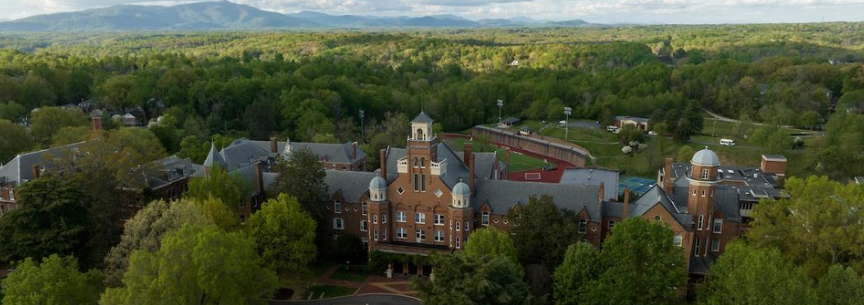
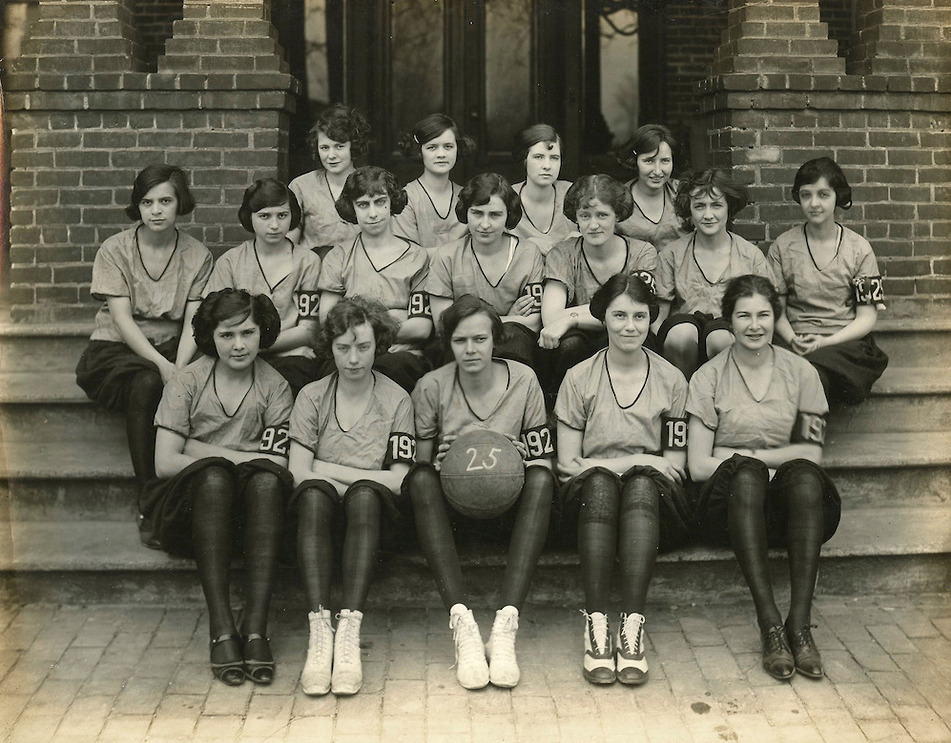
“That is the meaning of all leadership, it does not lie in avoidance, but in conquest. There is altogether too much public complaint, too much public condemnation because someone does not come and do all the work and bear all the responsibility in the world for us. That never will be done, never can be done. We need make no apology for our progress, no excuse for our success, they are the marvel of civilization, but we must remember that we are a long ways from being perfect. Constructive criticism is therefore warranted and helpful, but deconstructive complaint is unreasonable and harmful. Public burdens are heavy. Taxes are high. To meet the requirements of an expanding population, and an increasing business, means larger and larger outlays of capital, ever and more work by the people. But our country alone of all the great nations of the earth is diminishing its public expenditures, reducing its public debt. Instead of complaining of our lot, we ought to be rejoicing at it. Instead of trying to avoid the inevitable responsibilities of personal and national existence, we ought to find satisfaction in our abundant ability to discharge them.
“Education must teach these obligations. If the hope of the founders is not to be disappointed, there must be learned the duty of taking up and doing the work of today as they took it up and did their work. We do not know the future, but we do know that in the past there is ample warrant for our faith. Under the direction of an enlightened understanding, under the guidance of an inspired leadership, progress will continue, the destiny of mankind will be achieved. It is our work to contribute to that end. In meeting the increasing demands of civilization, the womanhood of the world will be raised to a new glory.”
— Vice President Calvin Coolidge, Founder’s Day address at Randolph-Macon Woman’s College, Lynchburg, Virginia, March 13, 1923